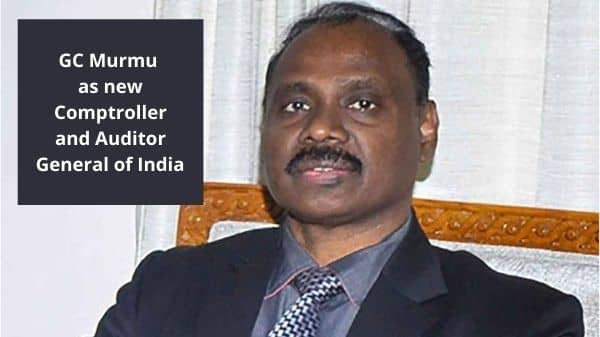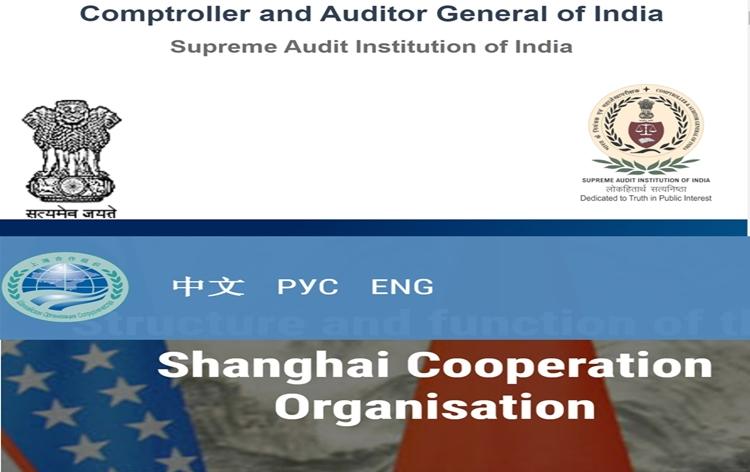The 6th Shanghai Cooperation Organization (SCO)Supreme Audit Institutions (SAI) Leaders’ Meeting is being hosted by the Comptroller and Auditor General (CAG) of India in Lucknow on 6 February. Comptroller and Auditor General of India, Girish Chandra Murmu led the discussions on the theme ‘Integrating Emerging Technologies in Audit’.
Buy Prime Test Series for all Banking, SSC, Insurance & other exams
About SCO Supreme Audit Institutions (SAI) Leaders’ Meeting:
- The heads of the Supreme Audit Institutions (SAI) of SCO member countries is participating in the meeting and the Governor of Uttar Pradesh has inaugurated the event.
- India currently holds the SCO presidency, which annually rotates among member countries. India’s 2023 theme is ‘Towards a SECURE SCO”.
- The concept of SECURE stands for: ‘S’ for security for citizens, ‘E’ for economic development, ‘C’ for connectivity in the region, ‘U’ for unity, ‘R’ for respect of sovereignty and integrity, and ‘E for environment protection.
About Comptroller and Auditor General(CAG):

- The Constitution of India provides for an independent office of the Comptroller and Auditor General of India (CAG).
- He/she is the head of the Indian Audit and Accounts Department and is the guardian of the public purse and controls the entire financial system of the country at both the levels, the Centre and the States.
- He shall be appointed by the President by warrant under his hand and seal.
- It is his/her duty to uphold the Constitution of India and the laws of Parliament in the field of financial administration.
Historical Evolution:
-
- The idea of CAG evolved in British India. In May 1858, for the first time, a separate department was set up with an Accountant General, who was responsible for accounting and auditing the financial transactions under the East India Company (EIC).
- In the Montford Reforms of 1919, the Auditor General became independent of the government.
- The Government of India Act 1935 strengthened the position of the Auditor General by providing for Provincial Auditors General in a federal set-up.
Conditions of the service:
-
- The salary and other conditions of service of the Comptroller and Auditor-General shall be such as may be determined by Parliament by law and, until they are so determined, shall be as specified in the Second Schedule.
- Provided that neither the salary of a Comptroller and Auditor-General nor his rights in respect of leave of absence, pension or age of retirement shall be varied to his disadvantage after his appointment.
- The salary and other conditions of service of the Comptroller and Auditor-General shall be such as may be determined by Parliament by law and, until they are so determined, shall be as specified in the Second Schedule.
Term of Office:
-
- He shall hold office for a term of six years from the date on which he assumes such office:
- Provided that where he attains the age of sixty-five years before the expiry of the said term of six years, he shall vacate such office on the date on which he attains the said
- He shall not be eligible for further office either under the Government of India or under the Government of any State after he has ceased to hold his office.
- He shall hold office for a term of six years from the date on which he assumes such office:
Duties and functions:
-
- He audits the accounts related to all expenditure from Consolidated Fund of India, consolidated Fund of each state and union territory having a legislative assembly.
- He audits all expenditures from the Contingency Fund of India and the Public Account of India as well as the Contingency Fund and Public Account of each state.
- He audits all trading, manufacturing, profit and loss accounts, balance sheets and other subsidiary accounts kept by any department of the Central Government and State Governments.
- He audits the receipts and expenditures of each State and Centre to satisfy himself that the rules and procedures on that behalf are designed to secure an effective check on the assessment, collection and proper allocation of revenue.
- He audits the accounts of any other authority when requested by the President or Governor.
Removal:
-
- He shall only be removed from office in like manner and on like grounds as a Judge of the Supreme Court.
Constitutional Provisions for CAG:
|



 Zelenskyy and Estonia’s New PM Discuss...
Zelenskyy and Estonia’s New PM Discuss...
 Ronald L. Rowe Jr. Named Acting Chief of...
Ronald L. Rowe Jr. Named Acting Chief of...
 Rahaab Allana Honored with French Arts a...
Rahaab Allana Honored with French Arts a...
